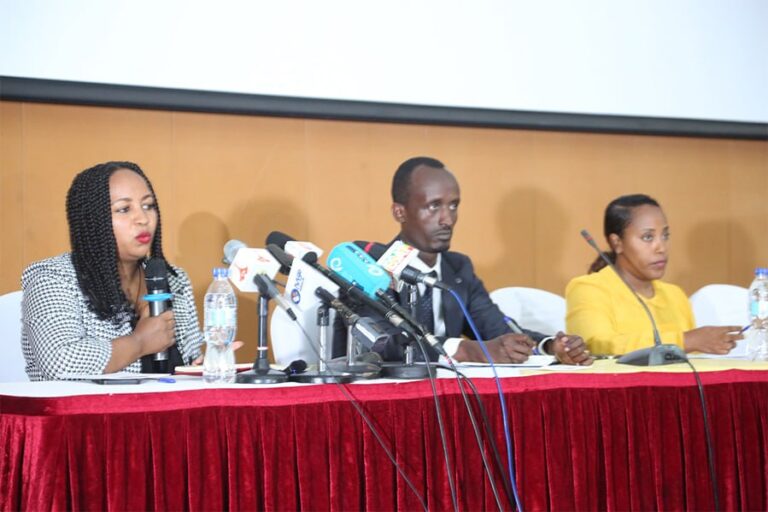African civil society, human rights groups, environmental groups, governments and the private sector stand firm in their commitment to align Africa’s efforts in combating energy poverty and fostering industrialization, all while advocating for a just energy transition and ensuring climate justice. This steadfast commitment was underscored by the conclusion of the Invest in African Energy forum held in Paris on May 15.
Throughout the forum, key stakeholders from across the continent and beyond convened to address the pressing energy challenges facing Africa. Taking place in Paris – the city where the Paris Climate Agreement was signed in 2016 – discussions centered on strategies to attract investment, promote sustainable energy development and drive economic growth while prioritizing environmental responsibility, African civil society, human rights groups, environmental groups, governments and the private sector recognize the critical importance of addressing energy poverty, which continues to impede socio-economic progress in many African nations. By fostering an environment conducive to investment and innovation, we Africans aim to unlock the continent’s vast energy potential and empower communities with access to reliable, affordable energy sources.
The Paris Declaration calls for fruitful discussions and collaborations, highlighting the shared commitment of African nations, global investors and industry leaders to drive sustainable energy development across the continent.
Moving forward, we remain dedicated to championing Africa’s energy agenda, advocating for policies that balance economic growth with environmental stewardship, and empowering African nations to realize their energy potential while advancing climate goals.
We recognize Africa’s sovereign right to develop its energy resources – which include north of 125 billion barrels of oil and 620 trillion cubic feet of natural gas – in a balanced and sustainable manner. Ramping up energy investment, deploying continuous finance and advancing energy projects represent Africa’s core priorities, as 600 million Africans lack access to reliable power and 900 million Africans lack access to clean cooking fuels. Projects like the TotalEnergies-led Mozambique LNG development and the East African Crude Oil Pipeline seek to maximize Africa’s resources for the benefit of local communities. In West Africa, developments such as Perenco’s Cap Lopez LNG Terminal and associated LPG facility, the Nigeria-Morocco Gas Pipeline and the Eni-led Congo LNG project will catalyze long-term economic growth and energy resilience, with natural gas, LNG and LPG set to play a critical role in the continent’s energy poverty reduction strategy. The Southern African region is only just starting to realize the full potential of its oil and gas resources, with recent discoveries made in Zimbabwe’s Cabora Bassa Basin by Invictus Energy and Namibia’s prolific Orange Basin by Shell, TotalEnergies and Galp. Namibia is also home to the development of sub-Saharan Africa’s largest green hydrogen project led by Hyphen Hydrogen Energy, while Mauritania is pioneering green hydrogen through Chariot’s Project Nour and CWP Global’s AMAN Project, coupled with expanded gas development from the bp-operated Greater Tortue Ahmeyim LNG project.
Despite Africa’s unmet energy requirements, global energy lending has only tightened, as major European and other Western banks exit the fossil fuels industry in Africa, while financing fossil fuels in Western countries. These institutions have not been equitable when it comes to facilitating adequate energy and climate finance for African countries, where local populations are disproportionately affected by both climate risks and restrictions on fossil fuel development. Europe has made repeated calls for natural gas and green finance, yet there is a considerable blockage on energy finance for African countries. This chokehold continues to inhibit Africa’s industrial growth and the establishment of critical gas-driven industries like power, petrochemicals, fertilizers and mining, keeping the continent at a developmental lag.
We Africans deplore the continuous polarization of the energy dialogue in Western countries and call on the demonization of African oil and gas to stop. We urge free market solutions to Africa, and not a continuous push for aid so that Africans pledge to leave their resources in the ground. More aid is not the answer. Investment is key. From Cape to Cairo, from Nairobi to Dakar, we stand united toward meeting our shared obligations to fight climate change, noting that wealthy nations need to decarbonize and Africa needs to industrialize.
It is the position of African civil society, human rights groups, environmental groups, governments and the private sector that African countries must diversify available pools of capital and create financial instruments outside of traditional institutions – tapping into private equity and non-conventional bonds – to fund new exploration and energy initiatives. Moreover, African countries must put in place attractive regulatory and fiscal terms, thereby creating an enabling environment and removing all barriers to investment, such as incohesive regulation, excessive red tape or nationalistic policies. With competitive terms and incentives in place – followed by the integration of ESG principles and capacity building requirements – African energy projects will be able to compete effectively for global capital and work toward making energy poverty history across the continent.
Distributed by APO Group on behalf of Energy Capital&Power.








